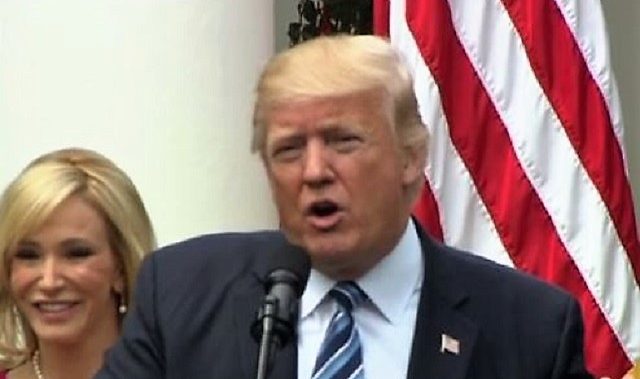 Attorney General Jeff Sessions drew ire and controversy from Democrats when he refused to answer questions about certain topics during his appearance before the Senate Intelligence Committee on Tuesday. There was speculation prior to the hearing over whether or not executive privilege would be used to get out of certain questions, but the privilege was never invoked. As a result, things got pretty awkward during the hearing and they remain that way to this day.
Attorney General Jeff Sessions drew ire and controversy from Democrats when he refused to answer questions about certain topics during his appearance before the Senate Intelligence Committee on Tuesday. There was speculation prior to the hearing over whether or not executive privilege would be used to get out of certain questions, but the privilege was never invoked. As a result, things got pretty awkward during the hearing and they remain that way to this day.
Sessions claimed that Justice Department policies allowed him to keep quiet regarding confidential communications with the President, but that didn’t satisfy everyone. Nor should it. Rep. Adam Schiff (D-Cal.), ranking member of the House Intelligence Committee threatened to subpoena Sessions if he won’t answer. “You’ll have to claim executive privilege or you’re going to have to testify,” Schiff said on CNN after the hearing. Which begs the question: why didn’t the President invoke executive privilege?
The questions Sessions tried to avoid could have been covered by executive privilege, Jonathan Turley, law professor at George Washington University, told LawNewz.com. However, Turley pointed out, the privilege has to be properly invoked prior to its use, and that never happened, so Sessions should still have had to answer.
It’s unclear why President Trump didn’t invoke executive privilege before Sessions’ testimony. Normally, I’d say the bad optics would be a deterrent, but since when has that ever stopped POTUS from doing something? Trump fired James Comey in the middle of the Russia investigation, which looked really bad, and he defended himself by saying he had a right to do it, which was true. Same here.
Executive privilege would have raised eyebrows and voices among Democrats, but it might have been appropriate and it likely would have worked. Instead, Sessions was left hanging out to dry and might still have to face the same questions again. There is no longstanding “justice department policy” that would prevent Sessions from answering questions as he repeatedly stated. It is called executive privilege and it has to be officially invoked. As Schiff said, members of Congress could strike back now with subpoenas or litigation if he doesn’t provide the requested information without any invocation of the privilege.
Was the decision not to invoke the privilege part of a larger plan? Did Trump fail to protect Sessions because he’s still mad at him for recusing himself from Russia in the first place? I’d bet it’s a lot simpler than that, and that maybe Trump wasn’t aware of how executive privilege works. Or maybe he does and realized that Sessions could engage in some double talk and avoid answering without the potential political backlash.
Either way, we are waiting because the question remains unanswered.
[Image via CNN screengrab]
This is an opinion piece. The views expressed in this article are those of just the author.